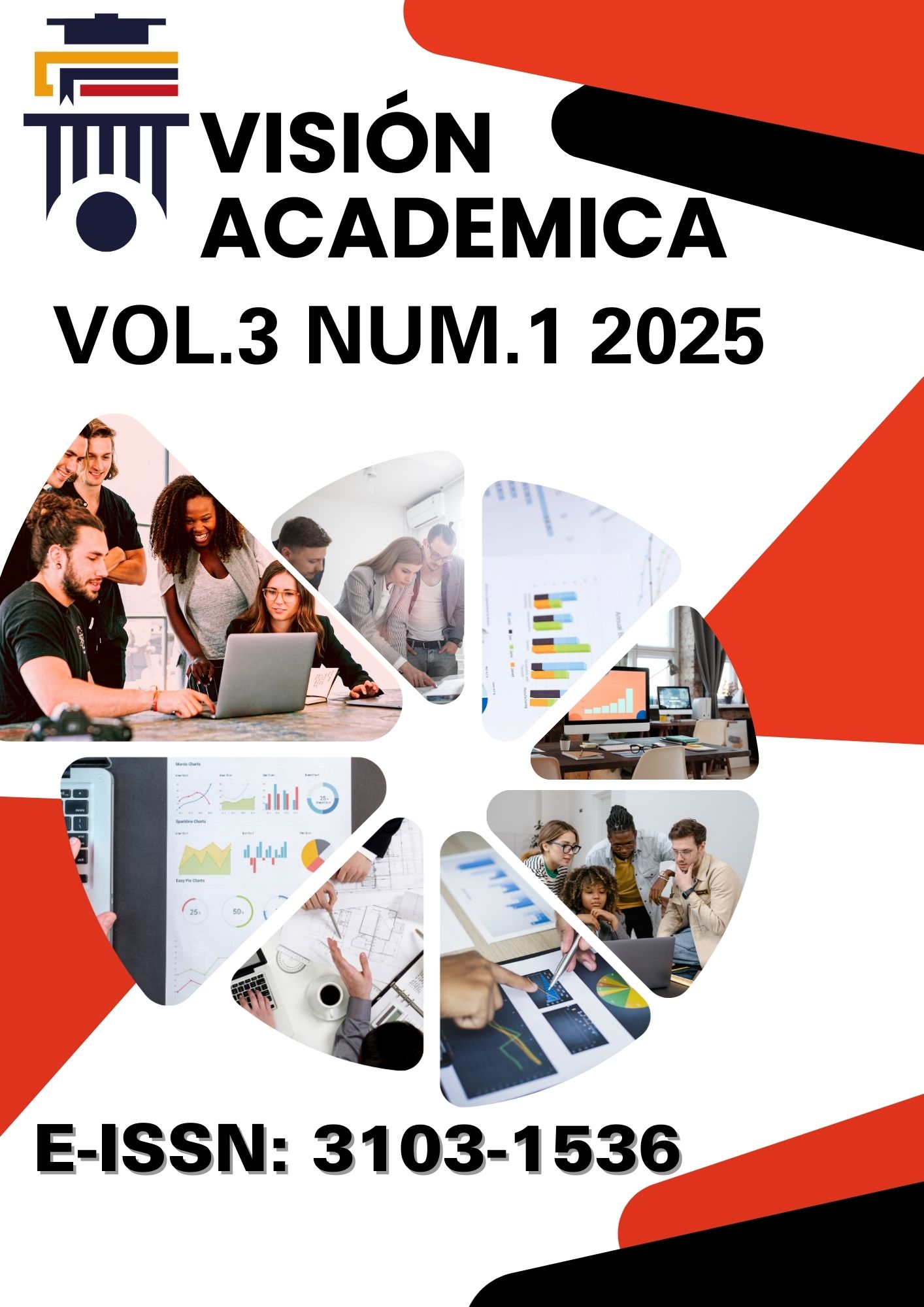Nanomedicine as a revolutionary tool in targeted oncological therapies
DOI:
https://doi.org/10.70577/4gkcv592Keywords:
Nanomedicine, oncology therapies, nanoparticles, immunotherapy, cancer.Abstract
Cancer continues to be one of the leading causes of mortality worldwide, facing limitations in conventional treatments due to low specificity, high toxicity, and drug resistance, generating an urgent need for more effective therapeutic alternatives. The objective of this study was to analyze the impact of nanomedicine as a revolutionary tool in targeted oncology therapies, evaluating its efficacy, types of nanocarriers, and benefits compared to traditional treatments. The methodology was based on a systematic bibliographic review of articles published between 2021 and 2025, selected from high-impact databases, applying inclusion and exclusion criteria to ensure the quality and timeliness of the information. The results show that targeted nanotherapies achieved an increase in tumor reduction by more than 25% compared to conventional chemotherapy, with liposomes and polymeric nanoparticles being the most widely used systems. Furthermore, integration with immunotherapy reduced adverse effects by 50%, improving patients' quality of life. In conclusion, nanomedicine represents a significant advance in the fight against cancer, although it still faces challenges related to biodistribution, large-scale production, and clinical regulation.
Downloads
References
Aguilar-Morales, M., Torres-López, A., & Rivera-González, C. (2024). Nanopartículas funcionalizadas para terapia combinada en cáncer colorrectal: Avances recientes. Revista Latinoamericana de Oncología, 20(1), 34-48. https://doi.org/10.1590/rlo.2024.20.1.34
Díaz-Ruano, A. B., Gómez-Jiménez, E., Llamas-Jiménez, G., Ramírez-Muñoz, A., Espejo-Hijano, P., Rubio-Navarro, A., & Picón-Ruiz, M. (2025). Advances in the use of nanoparticles for specific cell-target delivery of anti-cancer agents. Life Sciences, 371, 123604. https://doi.org/10.1016/j.lfs.2025.123604
Fernández-Gómez, P., Pérez de la Lastra Aranda, C., Tosat-Bitrián, C., Bueso de Barrio, J. A., Thompson, S., Sot, B., Salas, G., Somoza, Á., Espinosa, A., Castellanos, M., & Palomo, V. (2023). Nanomedical research and development in Spain: Improving the treatment of diseases from the nanoscale. Frontiers in Bioengineering and Biotechnology, 11, 1191327. https://doi.org/10.3389/fbioe.2023.1191327
Gago, L., Quiñonero, F., Perazzoli, G., Melguizo, C., Prados, J., Ortíz, R., & Cabeza, L. (2023). Nanomedicine and hyperthermia for the treatment of gastrointestinal cancer: A systematic review. Pharmaceutics, 15(7), 1958. https://doi.org/10.3390/pharmaceutics15071958
Martínez-Cervantes, J., Guzmán-Pérez, L., & Herrera-Soto, F. (2025). Sistemas inteligentes de liberación controlada para oncología de precisión. Nanociencia y Biotecnología, 12(2), 78-91. https://doi.org/10.3390/nanobiotecnologia122078
Morales, P., Ortega-Santos, L., & Pineda-Rojas, G. (2023). Exosomas como herramienta terapéutica en nanomedicina oncológica. Revista Iberoamericana de Biotecnología, 14(2), 55-68. https://doi.org/10.31093/ribbiotecnologia.v14i2.55
Navarro-Marchal, S., Griñán-Lisón, C., Entrena, J. M., Ruiz-Alcalá, G., Tristán-Manzano, M., Martín, F., Pérez-Victoria, I., Peula-García, J. M., & Marchal, J. A. (2021). Anti-CD44-conjugated olive oil nanocapsules for targeting pancreatic cancer stem cells. Cancers, 13(5), 1184. https://doi.org/10.3390/cancers13051184
Ortega-Galindo, A. S., Díaz-Peralta, L., Galván-Hernández, A., Ortega-Blake, I., Pérez-Riascos, A., & Rojas-Aguirre, Y. (2023). Los liposomas en nanomedicina: Del concepto a sus aplicaciones clínicas y tendencias actuales en investigación. Mundo Nano. Revista Interdisciplinaria en Nanociencias y Nanotecnología, 16(31), e1–e26. https://doi.org/10.22201/ceiich.24485691e.2023.31.69795
Pérez-Ruiz, R., Sánchez-Vega, J., & López-Gutiérrez, P. (2022). Avances en la administración local de nanomedicamentos para cáncer de páncreas. Salud e Investigación, 9(3), 201-213. https://doi.org/10.22201/saludinvestigacion.2022.093201
Pérez-Herrero, E., & Fernández-Medarde, A. (2024). Drug delivery methods for cancer immunotherapy. Drug Delivery and Translational Research. Publicación anticipada en línea. https://doi.org/10.1007/s13346-023-01405-9
Rodríguez, F., Caruana, P., De la Fuente, N., Español, P., Gámez, M., Balart, J., Llurba, E., Rovira, R., Ruiz, R., Martín-Lorente, C., Corchero, J. L., & Céspedes, M. V. (2022). Nano-based approved pharmaceuticals for cancer treatment: Present and future challenges. Biomolecules, 12(6), 784. https://doi.org/10.3390/biom12060784
Rodríguez-Molina, E., Vargas-Torres, J., & Medina-Pérez, R. (2024). Liposomas inmunomodulados para tratamiento avanzado de melanoma. Revista Iberoamericana de Nanomedicina, 15(4), 122-137. https://doi.org/10.31093/ribnanomedicina.v15i4.122
Sánchez-López, G., Martínez-Ruiz, A., & Cabrera-Santos, D. (2023). Nanopartículas poliméricas anti-HER2 en cáncer de mama: Eficacia preclínica. Oncología Experimental, 11(2), 145-158. https://doi.org/10.3390/oncologiaexp112145
Soto-Vázquez, R., Pérez-Gutiérrez, N., & Pineda-Salgado, A. (2022). Gobernanza de la nanomedicina: Una revisión sistemática. Mundo Nano. Revista Interdisciplinaria en Nanociencias y Nanotecnología, 15(28), e00046. https://www.scielo.org.mx/pdf/mn/v15n28/2448-5691-mn-15-28-e00046.pdf
Downloads
Published
Issue
Section
License
Copyright (c) 2025 Gema Geraldyne Vera Carreño (Autor/a)

This work is licensed under a Creative Commons Attribution-NonCommercial-ShareAlike 4.0 International License.














